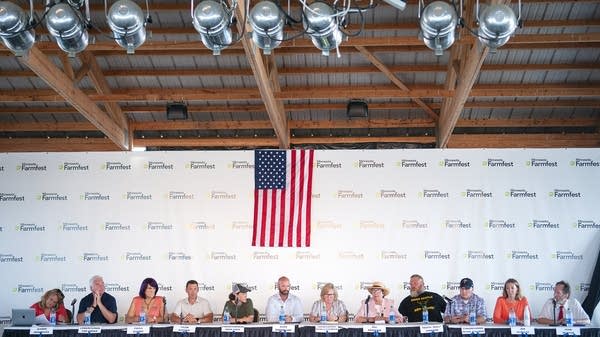A bumper crop of politics at Farmfest

A packed stage for the Congressional Candidate forum on agriculture and rural issues at Farm Fest in rural Morgan, Minn., on Tuesday. Candidates from four different congressional districts answered questions during the forum.
Jackson Forderer for MPR News
Go Deeper.
Create an account or log in to save stories.
Like this?
Thanks for liking this story! We have added it to a list of your favorite stories.


